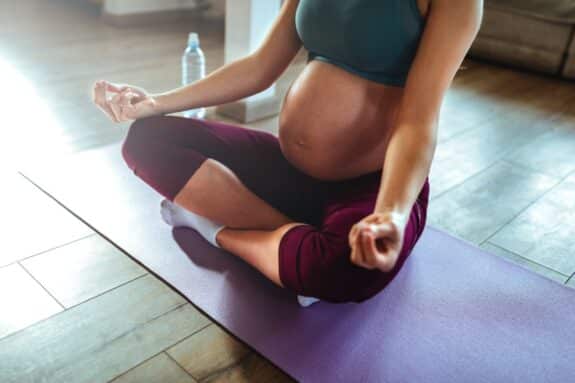Pregnancy is an exciting and important time for expectant mothers, but it can also be overwhelming. From the physical changes to the emotional roller-coaster, there are a lot of things to keep in mind. One of the most important factors is exercise during pregnancy. Regular exercise can help reduce weight gain, improve sleep, boost energy levels, reduce blood pressure, and even reduce complications during labor and delivery. Let’s look at the five benefits of exercise during pregnancy.
Reduce Weight Gain
Weight gain during pregnancy is normal and healthy; however, excessive weight gain can lead to a variety of health problems including obesity and diabetes after giving birth. Exercise can help manage your weight and prevent excessive weight gain by burning calories and keeping your body toned and fit. Additionally, regular exercise helps strengthen the muscles you will need for labor and delivery—which can make the process much easier!
Sleep
Lack of sleep is one of the most common complaints among pregnant women; this is due to a combination of physical changes (like increased hormone levels) as well as anxiety about upcoming events like labor and delivery. Exercise has been proven to increase serotonin levels in the brain which helps regulate our circadian rhythm—which means better sleep! Not getting enough sleep can compromise both your and your baby’s health; regular exercise can help ensure that you get enough restful sleep every night throughout your pregnancy.
Energy
It’s no secret that pregnancy takes a toll on your energy levels; luckily regular exercise can help counteract this effect by increasing your energy level naturally! Exercise increases circulation which means more oxygen pumping through your system—boosting alertness and improving well-being overall!
Blood Pressure
High blood pressure or hypertension during pregnancy can lead to serious complications such as preeclampsia (high protein in urine) or preterm labor (early labor). Regular exercise has been linked with lower blood pressure readings; plus it helps reduce stress hormones like cortisol which are known contributors to high blood pressure readings!
Reduce Complications
Finally, regular exercise throughout pregnancy has been linked with a decreased risk of developing complications such as preterm labor or low birthweight babies due to its ability to increase circulation and reduce stress hormones like cortisol in expectant mothers!
Pregnant women should strongly consider adding regular physical activity into their daily routine in order to reap all the amazing benefits that come with it! Exercise during pregnancy has been linked with reduced risk of complications such as preterm labor or low birthweight babies plus it helps increase energy levels, improve moods, decrease stress hormones like cortisol, promote better sleep patterns, and even reduce weight gain! So don’t feel guilty about taking some time out for yourself each day—your body will thank you for it!
Tips For Working Out While Pregnant
When working out while pregnant, it’s important to take extra precautions and listen to your body. Avoid high-risk activities such as horseback riding, skiing, and contact sports; these are more likely to cause injuries or complications for you and your baby. Make sure that you stay hydrated throughout your workout by drinking plenty of water. The best exercises for pregnant women are swimming, walking, yoga, and light weight lifting — anything that gets the heart rate up without being overly strenuous. If at any point during your workout, you feel too tired or get a headache or cramping pain in your lower abdomen, stop immediately; these could be warning signs that tell you to slow down or take a break from exercising altogether. It’s important to exercise smartly and be gentle with your body during this special time. Remember that exercise can help you have a healthy pregnancy and a healthy baby — just stay safe!
Start off slow and gradually increase the intensity as you get used to the exercise. Make sure that you check in with your doctor before beginning any exercise routine while expecting so they can give you specific guidelines tailored to your individual situation. And as always, listen to your body! Exercise should never be painful while pregnant; if something hurts or is uncomfortable, stop immediately and contact your doctor. Pregnancy exercise can be a great way to stay healthy and fit while expecting — just make sure that you take the proper safety precautions. Exercise is an important part of staying healthy during pregnancy, so have fun with it!
Note: This content was written for informative purposes only, and does not constitute medical advice or treatment. You should always consult with a qualified healthcare professional before starting any exercise routine while pregnant. Additionally, exercise safely by avoiding high-risk activities like horseback riding, skiing, and contact sports; staying hydrated; using an exercise that gets your heart rate up without being overly strenuous (e.g., swimming, walking, yoga); stopping immediately at any sign of pain or fatigue; and gradually increasing intensity as you become comfortable with the exercise. Exercise can help reduce stress levels, increase energy levels, and improve sleep quality during pregnancy — just make sure to follow these safety tips.









